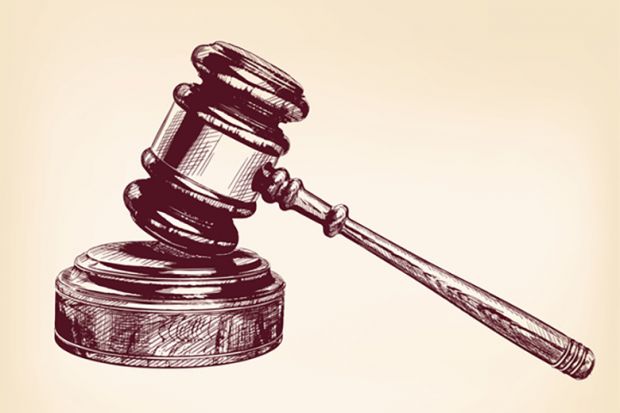Access any digitised 19th-century newspaper and you will find it seething with court reports of killings and murderous assaults. These bloody events were sometimes described by witnesses as having come out of the blue – inexplicable acts, often against a loved one, by a seemingly calm, rational human being. Tales of children, spouses and close friends dispatched without warning, without motive, fill the pages of Joel Peter Eigen’s Mad-Doctors in the Dock, the final volume in his trilogy on the insanity plea in Hanoverian, Victorian and Edwardian England. The first, Witnessing Insanity: Madness and Mad-Doctors in the English Court, was published in 1995; its follow-up, Unconscious Crime: Mental Absence and Criminal Responsibility in Victorian London, in 2003. Now Eigen has turned his gaze on the medical professionals who played an increasingly prominent role as expert witnesses. He has surveyed almost 1,000 Old Bailey trials in which the mental health of the defendant was at issue.
At the end of the 18th century, just one in 10 insanity trials heard from a medical man. Instead, great reliance was placed on friends, neighbours and associates for their view of the psychological stability of the accused because the total intellectual collapse that would exonerate a prisoner was felt to be easily identifiable by laypeople.
However, in the course of the 19th century, a range of new diagnoses emerged, complicating the relationship between mental illness and the law. And so by 1900, only 1 per cent of insanity trials took such evidence from non-qualified people. These new ideas challenged the notion that insanity was solely a disease of the intellect; a delusional state that made an individual incapable of discerning right from wrong. Could madness also be a disease of the emotions – a morbidity of the psyche that gave rise to uncontrollable urges? And/or could a defendant be the unfortunate innocent recipient of a poorly functioning nervous system passed down by degenerating ancestors? Should she or he be answerable in law for inherited physiological weaknesses that made impulse control impossible?
The real focus of Mad-Doctors in the Dock is the emergence in the second half of the 19th century of the blood-curdling concept “homicidal mania”. Why was it, Eigen ponders in a series of thoughtful and exhaustive chapters, that this particular diagnosis became acceptable to both legal and medical experts even as an earlier disease category, “moral insanity”, was widely shunned? What had changed?
One factor among many was that evolutionary biology appeared to give a firmer grounding for explanations of explosions of violence in an otherwise rational individual. Eigen also explores in depth what he identifies as “the subtle and not-so-subtle ways that practitioners of law and medicine shaped each other’s career trajectories”, and one further element likely to have validated the concept of homicidal mania was that it seemed to tie in with evidence given in court by prison doctors and police surgeons. These comparatively lowly, non-vainglorious toilers in the field of psychiatry had lengthy up-close interactions with the accused, which may have given their opinions greater weight in the courtroom.
Such a heavily nuanced subject is never going to make for an easy read, but Eigen has gone deeper than anyone to date in analysing the course of the insanity defence in English law. His trilogy is the go-to source for this fascinating and distressing topic.
Sarah Wise is visiting professor in 19th-century social history at the University of Washington’s London Study Center and author of Inconvenient People: Lunacy, Liberty and the Mad-Doctors in Victorian England (2012).
Mad-Doctors in the Dock: Defending the Diagnosis, 1760-1913
By Joel Peter Eigen
Johns Hopkins University Press
224pp, £29.50
ISBN 9781421420486
Published 11 November 2016
Register to continue
Why register?
- Registration is free and only takes a moment
- Once registered, you can read 3 articles a month
- Sign up for our newsletter
Subscribe
Or subscribe for unlimited access to:
- Unlimited access to news, views, insights & reviews
- Digital editions
- Digital access to THE’s university and college rankings analysis
Already registered or a current subscriber? Login




